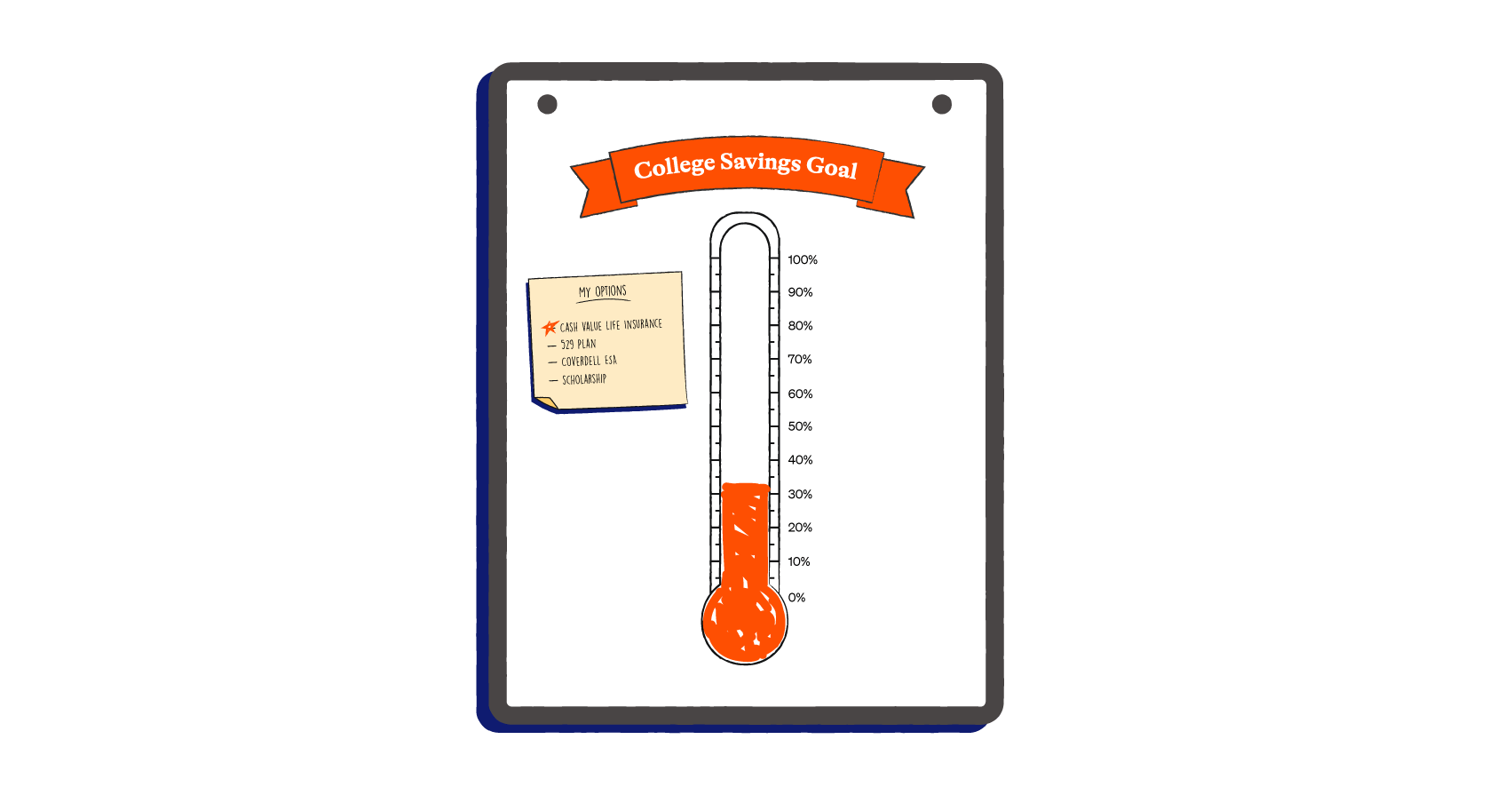If you are considering life insurance to help secure your children’s future, then you may want to consider indexed universal life insurance. Certain insurance products can provide benefits to policyholders while they are living (like various riders that help you customize coverage, tax-advantaged savings, and more), and an indexed universal life insurance product may be the right fit for you or your children.
In this article, we’ll dive into the differences between a 529 plan and an index universal life insurance product, and which may be the right fit for you.
Index Universal Life Insurance vs. 529 Plan
Key Takeaway

What Is a 529 Plan?
A state-run 529 plan operates similarly to a Roth 401k or Roth IRA account, but a 529 plan is intended for education rather than retirement savings. With this type of product, you have the option to invest in a selection of mutual funds. The amount you earn can grow in your account tax-deferred.
These plan distributions must be used for education-related expenses, or the gains may be subject to ordinary income tax and potentially a penalty. Say your child wants to attend a university outside of the United States–529 plans are subject to tax and penalty if the distributions are for colleges outside of the United States, which can also limit how you use these funds.
However, 529 plans do have some level of flexibility. These products were originally designed to help pay for post-secondary education costs, but in 2017, they were expanded to cover K-12 education costs. In 2019, these products expanded to apprenticeship programs. So, if your child decides to forgo the university experience and enter into a trade school, they may still be able to utilize the funds from their 529.
What Is Index Universal Life Insurance?
Index universal life insurance (IUL) is a form of permanent life insurance, meaning it lasts for the duration of the insured individual’s life as long as the premiums are paid in-full and on time. This type of insurance product usually offers a cash value account component along with a death benefit. Policyholders can earn interest through the money in the cash value account by tracking an equity index. This equity index is typically selected by the insurer.
The funds in an indexed universal life policy are typically available tax-free at any time and for any purpose when they are taken out via participating policy loans. However, this can depend on the company issuing the policy. IUL investment components generally do not suffer investment losses if they have ‘floors’ to help minimize large swings in interest payments, and these floors are typically guaranteed for the life of the policy.
How Can Students Use Both?
So, should you opt for a 529 plan or an IUL product? Both can be pursued and can offer benefits to students looking for financial help with education expenses. With an IUL, you have more flexibility with how to spend the funds in your account, which can be helpful if plans change or unexpected expenses arise. Additionally, IULs are not usually included in financial aid analyses, which means you may be able to use an IUL product as a way to fund college expenses without it impacting financial aid. The assets in a 529 plan may be included in the financial aid analysis, which can reduce the amount of financial aid you or your children qualify for.
If you want the option to accrue funding for college without it impacting your financial aid outcomes or want the option to spend that money flexibly, an IUL may be the right fit for you. To explore your options and find an insurance product that can help you meet your goals, continue exploring the educational content Everly Life provides.
Related Articles
- whole life insurance for seniors over seventy
- whole life insurance for nurses
The information above is for educational use only and does not represent insurance, tax or legal advice. It is not a recommendation or solicitation to buy insurance. Please talk to your licensed insurance agent for more information about life insurance and your needs. Please consult with the appropriate professional for tax or legal advice. Guarantees are backed by the claims-paying ability of the issuing insurance company.
Article Author: Meredith Bell
Author Bio: Meredith joined Everly in 2022 and has 20+ years of experience in the life insurance industry. She has held various roles in advertising, marketing, communications, sales and distribution support, and product development. Outside of the office, Meredith lives with her daughter Kennedy and their dog Mavis. Meredith enjoys cooking, camping, gardening, hiking, and bourbon (though not always at the same time). She is a live music enthusiast and an avid reader. Her favorite quote is by Thomas Jefferson: "I cannot live without books." Meredith agrees, but would add cheese, movies, and dogs to that list.